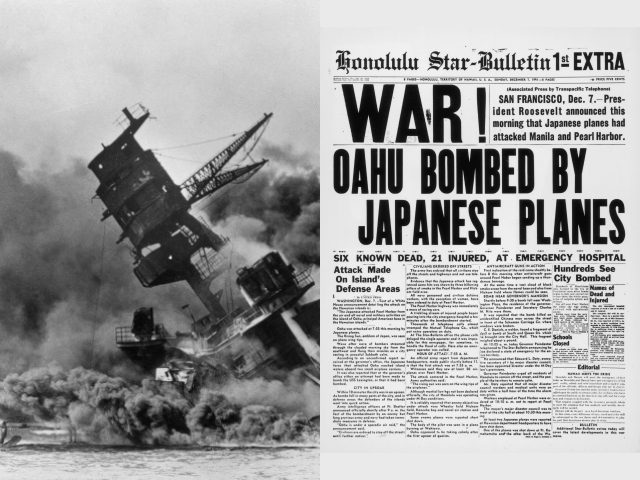Parallels In Infamy
 Seventy-five years ago today, in 1941, Japanese fighter bombers bombed and strafed the US Navy Pacific Fleet at Pearl Harbor. President Roosevelt called it a "day that will live in infamy." Stateside, in response to the attack, Japanese Americans were rounded up and interned in makeshift camps. Today, some would say it was not our finest hour. Others would say that it was prudent. The ensuing war in the Pacific was grueling as America's Navy in that theater was decimated. But it was speedily rebuilt and sent to seek out and destroy Japan's presence with prejudice. Today in 2016, Japan's Prime Minister Shinzo Abe will visit Pearl
Harbor later this month, becoming Japan’s
first leader to do so,to console the souls who died there, he said. At the end of the war bitter enemies became fast friends. We drive Toyotas; they play baseball.
Seventy-five years ago today, in 1941, Japanese fighter bombers bombed and strafed the US Navy Pacific Fleet at Pearl Harbor. President Roosevelt called it a "day that will live in infamy." Stateside, in response to the attack, Japanese Americans were rounded up and interned in makeshift camps. Today, some would say it was not our finest hour. Others would say that it was prudent. The ensuing war in the Pacific was grueling as America's Navy in that theater was decimated. But it was speedily rebuilt and sent to seek out and destroy Japan's presence with prejudice. Today in 2016, Japan's Prime Minister Shinzo Abe will visit Pearl
Harbor later this month, becoming Japan’s
first leader to do so,to console the souls who died there, he said. At the end of the war bitter enemies became fast friends. We drive Toyotas; they play baseball.
What lessons can be learned from that day in December seventy-five years ago? Well, I can think of at least one. An enemy who sneak attacks us must be immediately confronted, engaged and defeated. Beaten. Destroyed. Punished. No negotiation. No compromise. No coddling. Vanquished. Fought to win. Only then can we liberate him from his savagery and treachery, and reach out our hand and pull him up. Like we did then when there's no longer any fight left in him, and he can understand the folly of his brutal beliefs and the futility of his aggressiveness towards the United States of America.
Then, and only then, can we perhaps become fast friends.

No comments:
Post a Comment